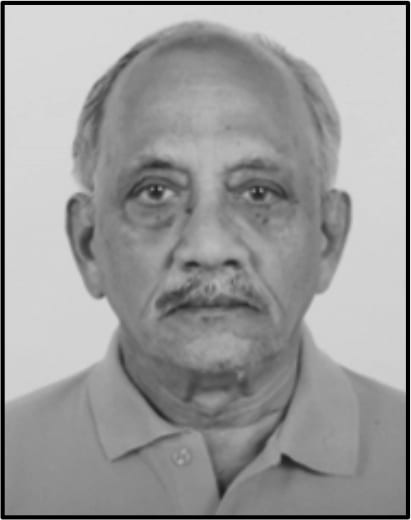A Tribute to U. Ve. Prof M.A. Lakshmithathacharya Swami- From a Soldier-Disciple
Encouraged by our father, Prof. M.A. Shama Iyengar, my elder brother Prof. M.S. Alvar and I first read the Srimad Bhagavatam as teenagers in school. Despite studying in a Jesuit institution in Pune, the text left a deep impression on us. As schoolboys, we often listened to the Mahabharata and Ramayana at the feet of our mother, M.A. Vengadamma, and our eldest brother, M.A. Rajan, who recited Kumaravyasa's Bharatha with extraordinary sweetness. My father persistently encouraged us to read selected Upanishads, which we did—albeit reluctantly.
By the time I joined the Indian Army as a Class I Gazetted Commissioned Officer in June 1962, at the age of twenty, I had developed a genuine love for ancient Indian philosophy, Sanātana Dharma, and its spiritual traditions. One might assume that military life would lead me to abandon these traditions and embrace materialism. However, the opposite proved true.
The Army, being fundamentally traditional, draws pride and purpose from its historical and spiritual roots. Traditions such as loyalty, courage, integrity, and self-sacrifice, which were established by predecessors, inspire soldiers to risk their lives in service. Simultaneously, the Army places great emphasis on modern science and technology, encouraging soldiers to remain abreast of advancements. This duality of reverence for the past and adaptability to the present defines the Armed Forces and resonated deeply with my own values.
During my Army years, my wife Geetha faithfully observed our festivals, especially Janmashtami, earning admiration from my colleagues. This alignment of military traditions with spiritual values reinforced my commitment to preserving and integrating ancient wisdom with modernity. Upon retiring in April 1991, after over 29 years of active service, I sought a spiritual guru who could guide me in harmonizing traditional values with contemporary advancements. I was overjoyed to discover U. Ve. Prof. M.A. Lakshmithathacharya Swami, a visionary who embodied this integration. His deep knowledge of scriptures and expertise in computer technology convinced me that he was the ideal Ācārya to lead me deeper into the spiritual realm.
In line with the tradition established by Ācārya Rāmānuja, Swamiji initiated me and my wife into the Śrī Vaiṣṇava faith through Samāśrayaṇa (Tapa and Puṇḍra Saṃskāras). This marked a turning point in our lives as gṛhasthas seeking ultimate liberation. Swamiji's duality—firmly rooted in ancient traditions while embracing modernity—was a beacon of hope for those seeking to integrate spiritual and scientific progress. Swamiji epitomized the qualities of an ideal Ācārya as described by Swami Pillai Lokācārya in the Śrīvachanabhūṣaṇam: a humble conduit of spiritual knowledge dedicated solely to the emancipation of disciples. His selflessness, vast erudition, and ability to convey complex ideas in relatable ways made him a true guide.
During our interactions, Swamiji encouraged me to use my writing skills to propagate aspects of Sanātana Dharma. His guidance led me to undertake diverse research projects, deepening my understanding of Śrī Vaiṣṇavism, Hindu philosophy, and the integration of ancient wisdom with modernity. The sudden demise of Swamiji during the pandemic was a profound loss, marking the end of an era of enlightenment. However, his legacy lives on through his eldest son, Dr. M.A. Alwar, who has continued to mentor us. Under the guidance of Dr. Alwar and Dr. Vidya, my wife and I have found renewed purpose, working on projects that illuminate the myriad dimensions of Hindu philosophy and spirituality.
The teachings of U. Ve. Prof. M.A. Lakshmithathacharya Swami remain a guiding light for all his disciples, inspiring us to pursue the path of knowledge, devotion, and integration of the ancient and the modern.
